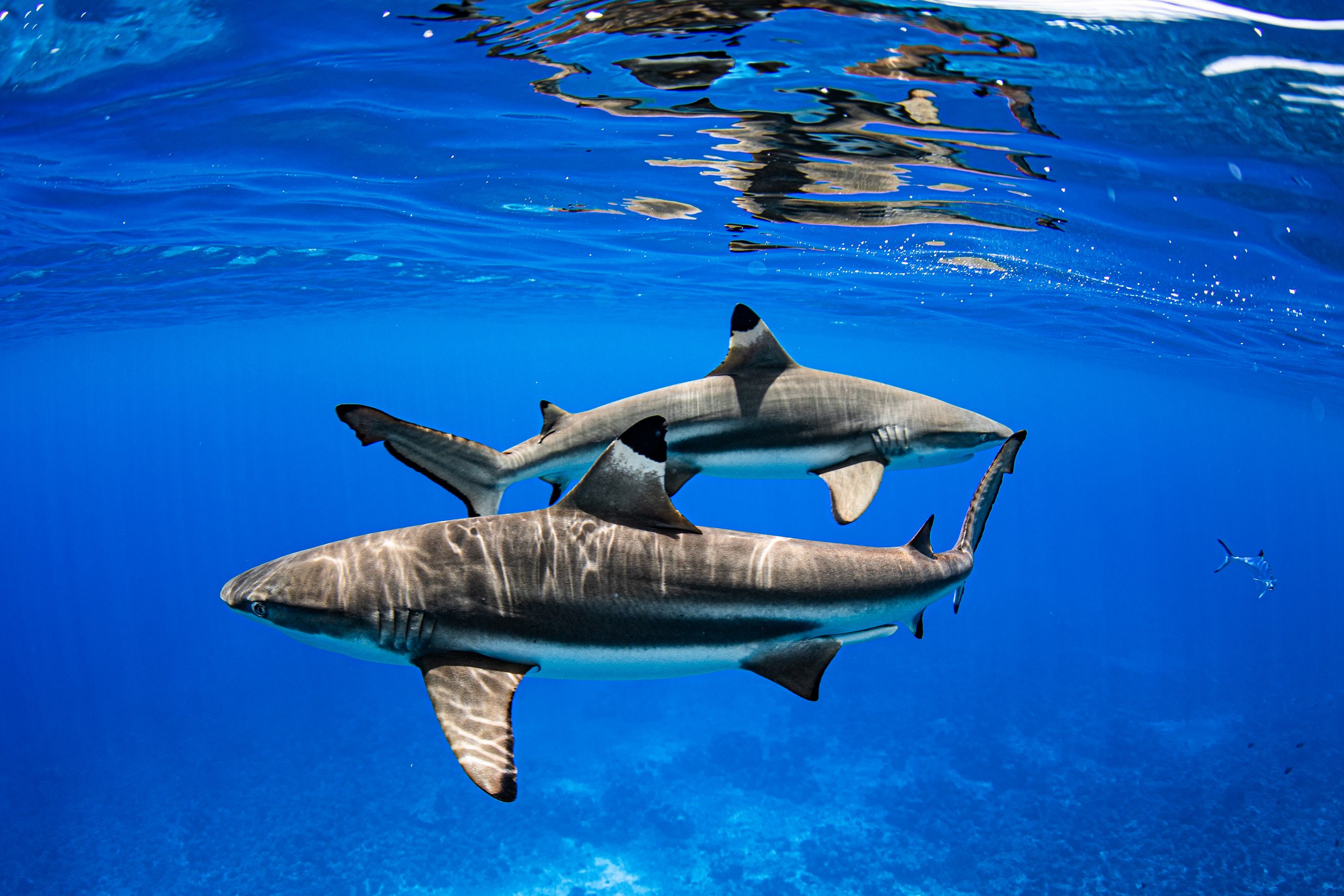Banner photo by Jayne Jenkins
Requiem sharks
(Family Carcharhinidae)
Proposed by: Panama, Bangladesh, Colombia, Dominican Republic, Ecuador, El Salvador, European Union, Gabon, Israel, Maldives, Senegal, Seychelles, Sri Lanka, Syrian Arab Republic, and United Kingdom of Britain and Northern Ireland
Nineteen Carcharhinid shark species are proposed for Appendix II listing at CITES CoP19. These species are all assessed as Endangered (EN) or Critically Endangered (CR) under the IUCN Red List of Threatened Species, with most populations facing rapid recent declines of 70% or more, and some populations suffering near 100% depletions. Due to similarities in appearance and prevalence of Carcharhinids in the international trade, all remaining species in the family are included as lookalikes under Annex 2b, Criterion A.
Many requiem shark species are present in the international trade for their fins and meat. Given the evidence of rapid and severe population declines, driven at least in part by the demand for their products in the international trade, nineteen requiem shark species are proposed for listing under CITES App. II.
Most of the nineteen species are large-sized sharks, with coastal distribution but often restricted ranges. A recent global survey has highlighted the widespread depletion of coastal and reef-associated sharks across tropical oceans, with sharks being functionally extinct in at least 20% of all reefs surveyed. Despite their susceptible nature to overfishing and high fishing pressure, and the added pressures of habitat deterioration and climate change, there are limited management measures in place for most of these species.
Appendix II means that species whose populations are still healthy can continue to be traded at sustainable levels. Listing requiem shark species onto Appendix II now will prevent populations from dropping so low that trade may need to be banned in the future.
Due to similarities in appearances in fins and meat, all other members of the Family Carcharhinidae are proposed as lookalike species to allow for effective enforcement of this listing at the point of trade.
© 2021 Ilan Elgrably / Shutterstock
With the large representation of Carcharhinids in the global trade, enforcement at port can become increasingly time-consuming for distinguishing between listed and non-listed species in the family. Listing the remaining Carcharhinid species as lookalikes not only allows those species to also come under CITES management in the trade, allowing for precautionary management of vulnerable and increasingly threatened species, but also reduces the capacity burden of enforcing CITES shark listings and removes the significant potential for illegal trade labelled as unlisted species.
Photo by Kimberly Jeffries
Photo by Stan Shea
The nineteen lead species of this proposal are:
· Grey reef shark (Carcharhinus amblyrhynchos) | Endangered (EN)
· Dusky shark (C. obscurus) | Endangered (EN)
· Smalltail shark (C. porosus) | Critically Endangered (CR)
· Ganges shark (Glyphis gangeticus) | Critically Endangered (CR)
· Sandbar shark (C. plumbeus) | Endangered (EN)
· Borneo shark (C. borneensis) | Critically Endangered (EN)
· Pondicherry shark (C. hemiodon) | Critically Endangered (EN)
· Smoothtooth blacktip shark (C. leiodon) | Endangered (EN)
· Sharptooth lemon shark (Negaprion acutidens) | Endangered (EN)
· Caribbean reef shark (C. perezi) | Endangered (EN)
· Daggernose shark (Isogomphodon oxyrhynchus) | Critically Endangered (CR)
· Night shark (C. signatus) | Endangered (EN)
· Whitenose shark (Nasolamia velox) | Endangered (EN)
· Blacknose shark (C. acronotus) | Endangered (EN)
· Whitecheek shark (C. dussumieri) | Endangered (EN)
· Lost shark (C. obsoletus) | Critically Endangered (CR)
· Pacific smalltail shark (C. cerdale) | Critically Endangered (CR)
· Borneo broadfin shark (Lamiopsis tephrodes) | Endangered (EN)
· Broadfin shark (Lamiopsis temminckii) | Endangered (EN)
Identification and Implementation
Coming soon
Relevant Research and Resources
MacNeil, M.A., Chapman, D.D., Heupel, M. et al. Global status and conservation potential of reef sharks. Nature 583, 801–806 (2020)



